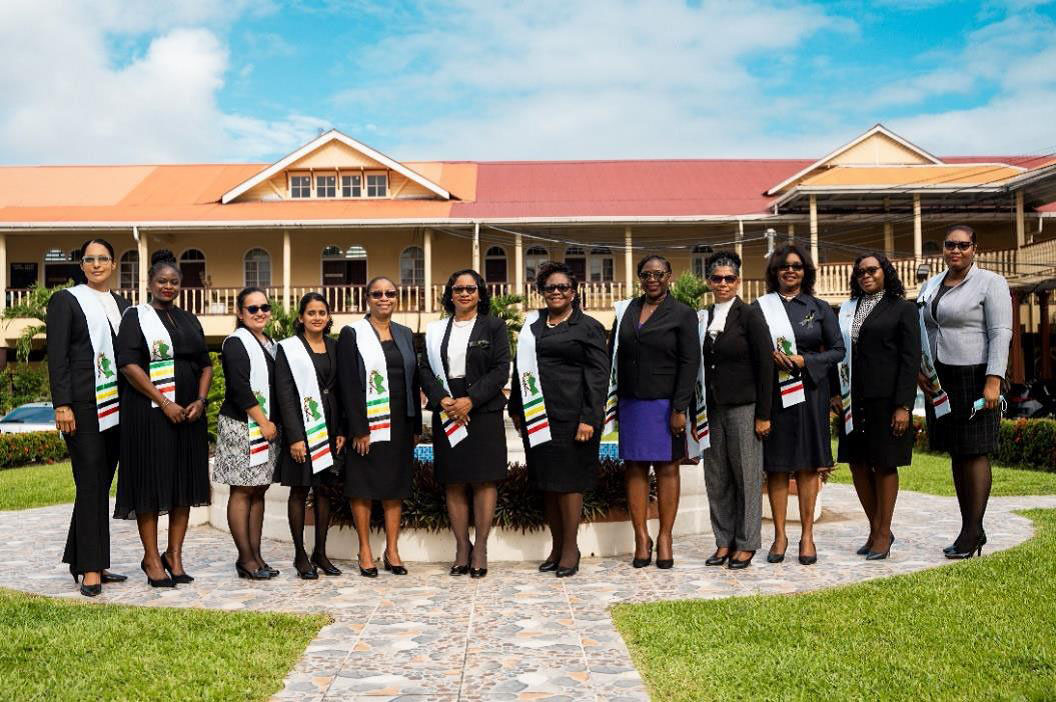The Guyana Association of Women Judges (GAWJ) has announced that it will embark on a joint project with non-governmental organisations to conduct a practical survey of women with babies in prison in Guyana.
This was revealed in a press release issued in honour of International Day of Women Judges, which was observed yesterday, March 10, under the theme “Empathy and Action Towards Women and Girls in Carceral Settings”.
According to the release, the discussion will be centred on the question, “What happens when the prisoner is also a mother?” The GAWJ elaborated that this question was intended to be addressed in the context of pregnant women who give birth to babies while in prison.
“This topic has attracted the attention of many women judges around the world,” the release said. “Protecting women with children in prison from gender-based violence and any form of violence cannot be overemphasised.”
The GAWJ said it was for this reason that in 2010, the United Nations General Assembly at its 65th session adopted the Bangkok Rules for the treatment of women prisoners and non-custodial measures for women offenders. The organisation, headed by retired chief magistrate Ann McLennan, said that these rules outline the basic standards for the treatment of women in prisons. They also guide policy makers, legislators, sentencing authorities and prison staff to reduce the imprisonment of women, and to meet the specific needs of women in carceral settings, the release noted.
“In Guyana, the treatment of pregnant women who are incarcerated and who give birth while serving a sentence in prison is provided for in the Prisons Act, Chapter 11:01,” the GAWJ noted. The body alluded to Section 240 of the Act which states: “A female prisoner may have her baby with her during the baby’s normal period of lactation and longer (to a maximum of 12 months) if required in special circumstances, and the baby may be supplied with clothing and necessaries at the public expense”.
According to the GAWJ, an inquiry into the treatment of pregnant women and mothers who give birth to babies while in prison in Guyana, has revealed that there are robust standard operating procedures (SOPs) regarding the treatment of pregnant women from the time they are imprisoned. “These SOPs include provisions for prenatal care of the prisoner throughout the entire duration of the pregnancy, and also postnatal care for the mother, and specific care for the baby after delivery,” the statement read.
In its survey, the GAWJ said, it would seek to ascertain whether the legislative measures are adequate and whether the Bangkok rules are being used as a guide to prison conditions for women. It would also address the psychosocial support that is offered to the mothers. “The project is intended to determine what practical and meaningful interventions can be made to upgrade and improve the conditions of these women,” the release said.
“As we celebrate another International Day of Women Judges, we are committed to the principles that all women prisoners, especially those who are pregnant and those who are mothers with children in prison, are treated respectfully and with dignity while serving their sentences.”
The body extended Happy International Day of Women Judges 2024 to the members of the International Association of Women Judges, the Caribbean Association of Women Judges and all sister women judges’ associations.
GAWJ was launched in 2016, some eight years ago under the umbrella of the International Association of Women Judges (IAWJ). The role of the association includes addressing the needs and challenges of women, children and vulnerable groups in society and educating them about their rights under the law. It seeks to promote the empowerment of women on the bench, to overcome gender bias in the law and to strengthen the rule of law. These goals can be achieved through strong, committed, diverse leadership, encompassing fairness and equality in the courts, the release said.









